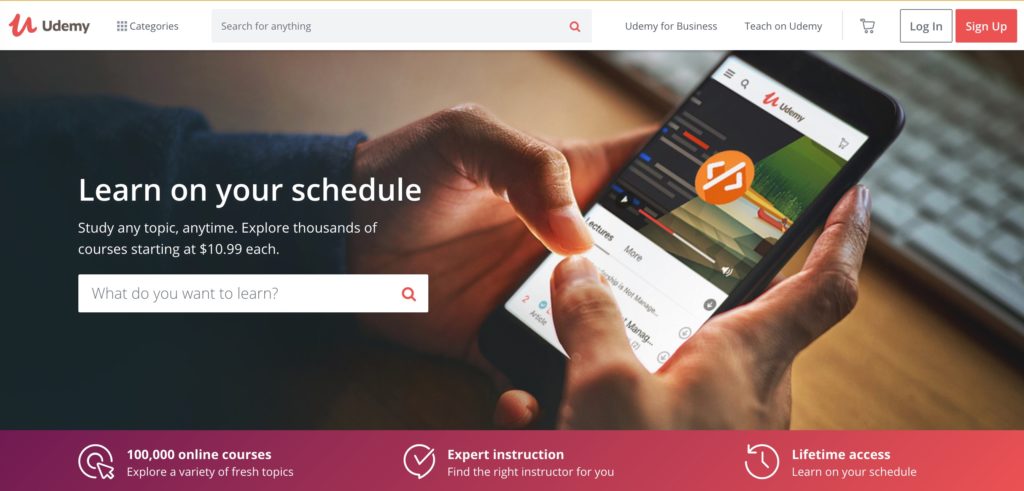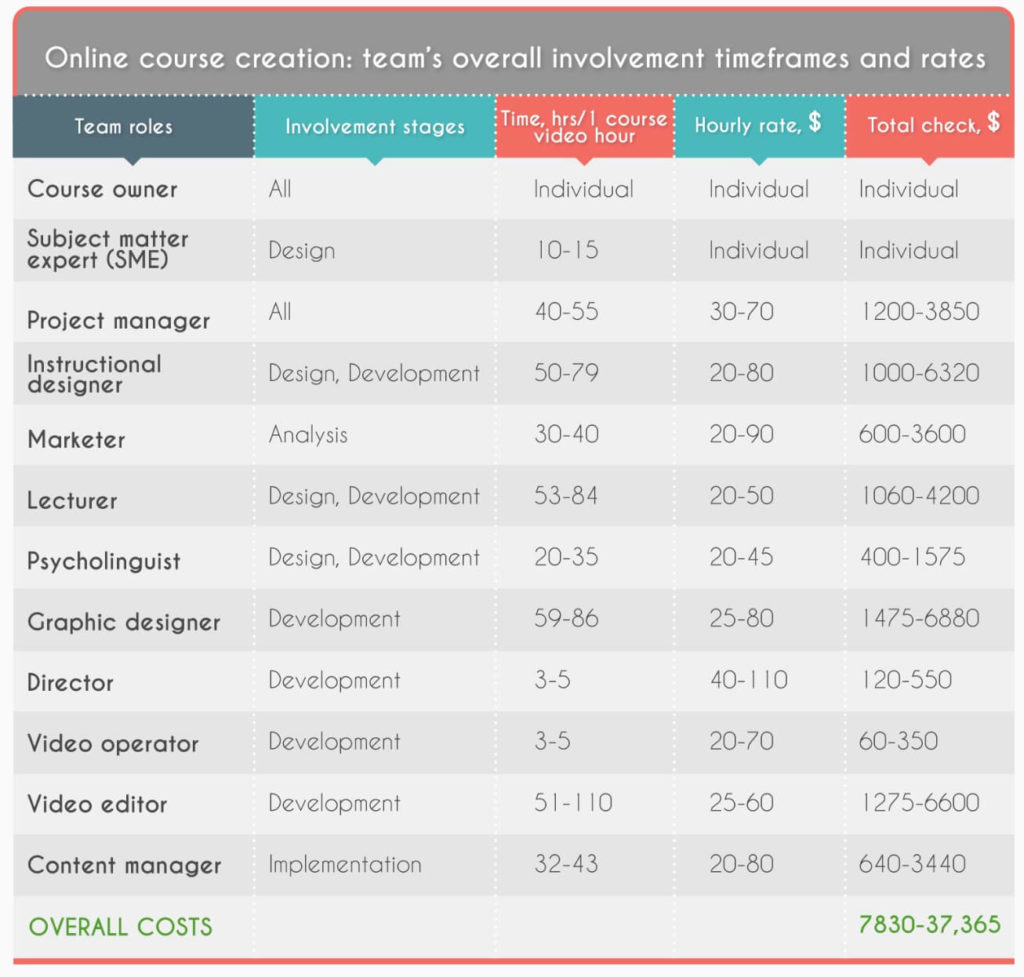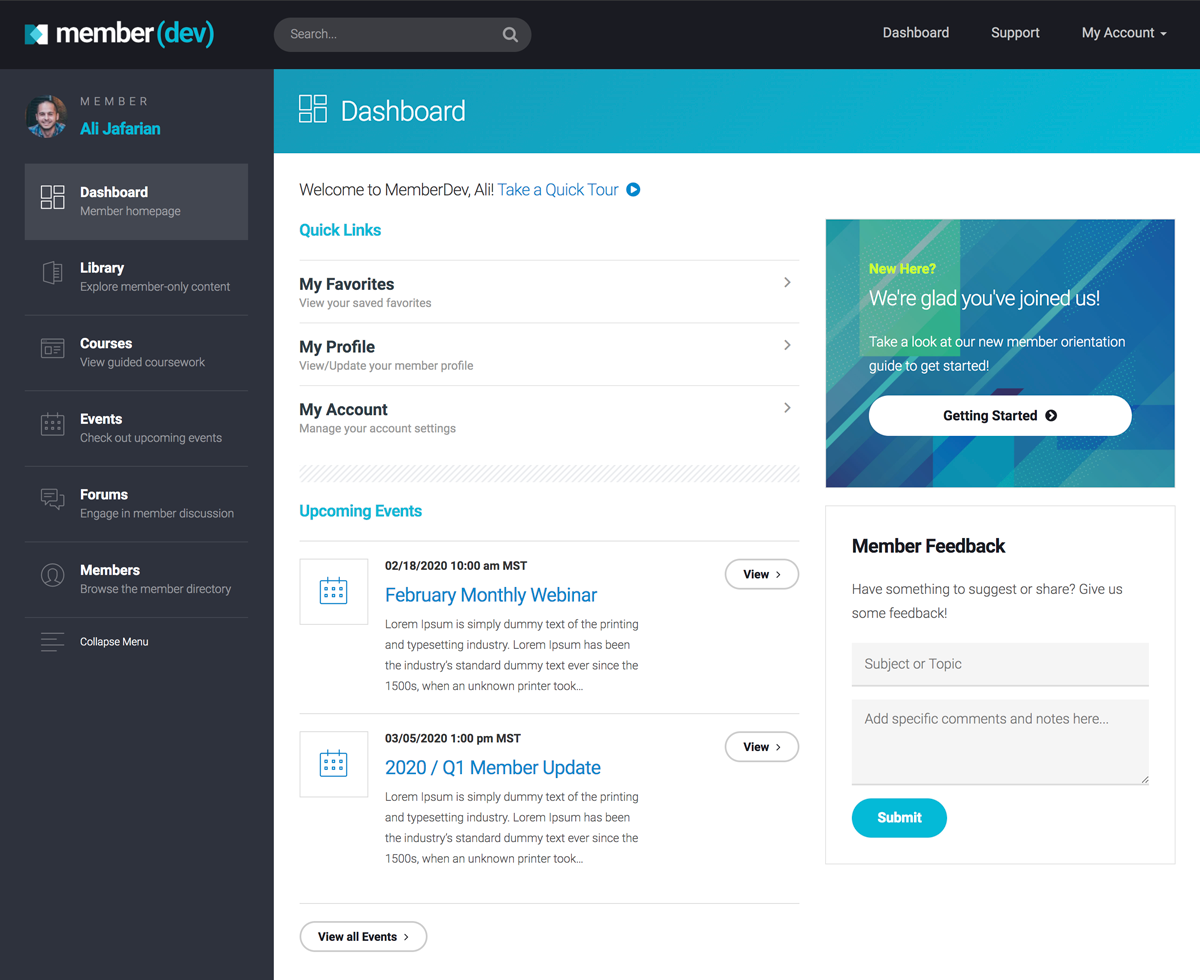If you’ve noticed an increase in the number of online courses in the last few years, you’re not alone.
The global eLearning market is expected to reach $325 billion by 2025, and thanks to the growing popularity of sites like Udemy, Coursera, Masterclass, and Lynda.com, the potential for launching a successful and profitable online course has never been greater.
There are plenty of course creators who have made hundreds of thousands, if not millions of dollars from their online courses. So why not you?
If you’re a membership site owner or content creator looking to generate additional income or share your expertise via an online course, you’ve probably wondered whether or not the effort is worth it.
Is an online course actually right for your business, or are you just jumping on the bandwagon?
Let’s look at some key considerations for launching an online course to help you decide whether or not it’s a good fit for your business model and goals.
What’s the ROI of Online Courses for Membership Sites?
Here’s the bottom line: You can absolutely make money off of online courses, although it’s not a guarantee. Even so, there are plenty of non-monetary benefits to launching a course.
On average, your online course could earn anywhere from $0 – $50k+ per month.
Some creators will earn between $1–5k/month, but there are numerous examples of online course teachers earning $10k – $50k per month.
If you choose not to charge for your courses, your ROI might be measured by other factors such as email list growth rate or site engagement — both of which can be boosted by having an online course. But, generally speaking, if you’re looking to make a profit from an online course, you can.
Factors that will impact your ROI include (but are not limited to):
- Course topic
- Audience interest
- Production quality
- Chosen platform (Udemy, WordPress, etc.)
- Marketing strategy
In fact, your chosen course topic may be one of the biggest factors for success.
In 2019, the most popular course topics tended to fall into three categories: programming (or general computer skills), project management, and digital marketing.
So while you may be enthused about your underwater basket weaving course, you may not make your first million off of it. But then again, if you’re knowledgable about an in-demand or essential skill, even if it’s just using PowerPoint or Excel, you can make a decent profit with an online course.
The impact of your sales and marketing will also affect your outcome. Selling directly from your WordPress membership site might make you a bigger profit than outsourcing to a third-party site like Udemy, for instance, but you might find a bigger audience (and thus greater profit potential) by hosting it elsewhere. Udemy, for example, currently has over 24 million students, so there are plenty of things to consider.

So is it worth it?
Essentially, yes. Aside from revenue potential, launching an online course can also:
- Solidify your expertise and help you stand out in the market
- Increase awareness about your business, product, or service
- Create new teaching, coaching, or business opportunities
- Grow your online audience and subscriber base
So even if you don’t make a dollar off of your online course, there are plenty of reasons to launch one anyway.
Pros and Cons of Launching Online Courses
Before you dive into the logistics of online course creation, it’s important to consider the pros and cons as well as potential obstacles to success.
The Pros:
Courses often have an easier buy-in than a product or subscription
Most people understand there is a clear payoff to taking an online course (they will learn something), whereas selling a product or service often requires more convincing upfront.
Courses often have immediate financial payoff for the creator
Unlike content creation for a blog, which may not yield benefits until much later, most courses sell for a one-off fee. This means greater potential for an immediate cash boost every time someone purchases your course.
Standalone courses mean less worry about member retention
With standalone courses, you don’t have to worry about maintaining recurring sales, which can ease the burden on some membership businesses — especially if you’re struggling to build an audience or reduce member churn!
Course income can be passive
Many courses are “set it and forget it,” which means once the work is done you can sit back and watch what happens. There will still be some support and admin work involved, but the majority of the work is already done.
The Cons:
There’s more pressure to show value
Because you’re basically selling a one-time product, people may have greater expectations for quality and outcomes. Your courses need to deliver at a high level from day one, or you may not see long-term profits otherwise. And you always run the risk of not making any profit off of your course.
Courses can take a lot of upfront work
Fleshing out a course idea, choosing a platform, and writing and designing course materials requires a good deal of upfront work, which also increases your risk if it doesn’t sell well.
Additionally, effective sales and marketing for your courses will always be a factor. To reach meaningful course sales you will need some method of “launch” strategy to share your course with the world. This is especially true if you choose to host your courses on a platform that doesn’t offer audience reach. For example, Udemy.com already has a huge audience that they promote your course to if it ranks well. Whereas a private platform puts the marketing and promotion completely in your lap.
This is why a launch strategy is essential.
A bad course launch can sink your profit potential
Like with any product, your launch can make or break course sales. This doesn’t mean you can’t generate revenue with a bad launch, but it will be important to get those elements right if you want long-term success.
Stay the “course” (no pun intended!)
Creating and launching courses definitely has its challenges. However, the bottom line is that online course creation can certainly be a lucrative path, especially if you commit to the process and put in the work.
Course creation requires commitment and consistency to see traction.
Key Considerations for Launching Online Courses
Assuming you’re set on launching an online course, what are the key considerations you should know about before diving in? Here are a few things to mull over.
Is there an audience for your course?
You may be an expert at Excel, but if your audience is already computer literate that may not be a major selling point. Consider topics that will be the most beneficial for your audience and that match with your business, industry, and expertise.
Who will create course content?
Maybe that’s you, someone else in your business, or maybe you need to hire a subject matter expert. This decision will greatly impact your overall costs as well as the time it takes to create your course.
Where will you host your content?
A third-party site can help with marketing but may not be as profitable as hosting on your own site. For example, platforms like Udemy take a percentage of your course sales. This can be as high as 20-30% with certain platforms.
On the other hand, if you choose to host your courses on a membership platform or LMS platform you will own all the profits. Most entrepreneurs go this route if they have basic technical chops.
How long will it take you to make your course?
If you can whip together a high-quality course in a weekend or two, you will have much more freedom to experiment. On the other hand, if your bandwidth or budget only allows you to create one or two courses a year (or ever), then you need to think carefully about which topics and learning platforms will have the greatest impact.
For the majority of courses, you could be looking at roughly 100-160 hours for production, so keep that in mind when planning your course creation.

How interactive will your course be?
In other words, how engaged do you need to be with your students? If you pre-record your courses and have no other quizzes or forums, it’s less work, but you may receive better overall ROI if you do build a community around your courses. Of course, that will require more planning and investment.
How big will your tech budget be?
You can definitely create a course with some free screen-capture software and a built-in computer mic, but you may choose to use professional camera equipment or hire voice actors. While there are ways to cut costs, your process will ultimately be guided by your budget. What elements are the most valuable to you?
Who will handle the marketing?
Whether you choose a platform like Udemy or Coursera or you launch a course from your own WordPress site, you still have to market your course. No platform will fully handle that process for you, so consider how you will sell and whether or not a third-party will help or hinder your sales.
Final Thoughts
Ultimately, the best decision is one with the least amount of friction and the greatest potential for ROI. If you have a topic you know you can teach, and you have access to basic course creation tools, you can launch a successful and profitable course — and you should definitely consider it, as the eLearning market is stronger than ever with no down turn in sight.
Resources
Check out some other free resources we offer around course creation:
Quick Guide
For more information on course creation, check out our guide to creating online courses for membership sites, which hits some additional planning and considerations in detail.
Free Download
We have a free download for how to plan course content that will save you a lot of time!
Course Platform
Manage and sell your courses with the member(dev) platform. Our all-in-one managed membership platform helps you create, manage and sell your courses!




